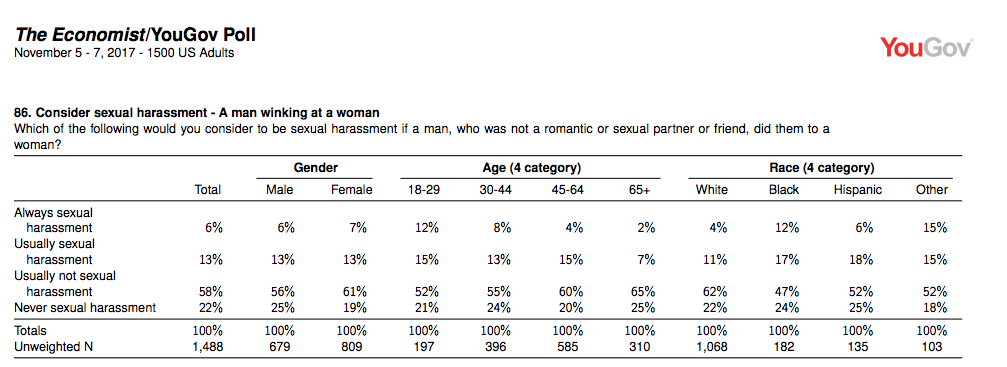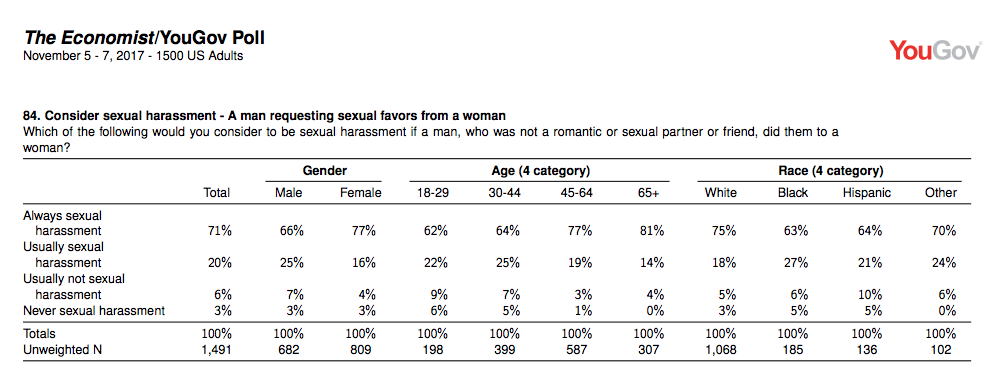In the wake of the Harvey Weinstein controversy, Hollywood actresses, celebrities, and average everyday women are coming out of the woodwork with stories about their own experiences with what they deem “sexual harassment.” A new poll by the Economist/YouGov shows the definition of sexual harassment is largely subjective—depending on who and where you ask.
The Economist asked respondents from Britain, France, Germany, Sweden, and the United States for their opinions on various things that that can be considered sexual harassment, such as asking someone out for a drink and explicitly asking for a sexual favor.
The Economist noted there was a generational gap in their findings: in general, younger respondents were more likely to find behavior to be sexual harassment:
For example, over half of British women under 30 said that wolf-whistling was unacceptable. Less than a fifth of those over 64 felt that way.
Observing the YouGov/Economist crosstabs for the United States, a similar pattern emerges. When it comes to a man remarking on a woman’s attractiveness, a man winking at a woman, a man looking at a woman’s breasts, younger people were more likely to find those behaviors to be sexual harassment.

(Image source: Economist/YouGov)
However, when it comes to explicit cases of sexual harassment, the Economist/YouGov poll shows that millennials don’t “always” view these behaviors as sexual harassment like the older demographics:

The poll found a consistent pattern among women: women are more likely to view behaviors as sexual harassment than men. The Economist writes:
Between men and women, differences of opinion emerged for specific questions. Both sexes tended to have similar views on whether a man who places his hand on a woman’s lower back or comments on her attractiveness has gone too far. However, female respondents were much less tolerant of men looking at women’s breasts than their male counterparts were: among Americans 64 and older, for example, half of women but just a quarter of men said they would consider such ogling sexual harassment.
The Economist also found the views on whether actions were appropriate or sexual harassment varied between countries:
Swedish men, for example, seem to feel entitled to make sexual jokes around women: only a quarter of them said such behaviour would be harassment. In contrast, three-quarters of American men expressed that opinion. Similarly, a quarter of French women under 30 believe that even asking to go for a drink is harassment, whereas almost none of their counterparts in Britain and Germany share that view.
So, before you ask a woman out for a drink to network, make sure you know her nationality and have a guess at her age.
Thank you for supporting MRCTV! As a tax-deductible, charitable organization, we rely on the support of our readers to keep us running! Keep MRCTV going with your gift here!
